The iPhone 5 Review
by Anand Lal Shimpi, Brian Klug & Vivek Gowri on October 16, 2012 11:33 AM EST- Posted in
- Smartphones
- Apple
- Mobile
- iPhone 5
Six Generations of iPhones: Performance Compared
Section by Anand Shimpi
Cross platform smartphone benchmarks are interesting, but they do come with their own sets of issues. Before we get to that analysis however, let's look at how the iPhone's performance has improved over the past six generations. Luckily Brian has a set of all of the iPhones so he was able to run a few tests on all of the devices, each running the latest supported OS.
We'll start with SunSpider 0.9.1, our trusty javascript performance test:
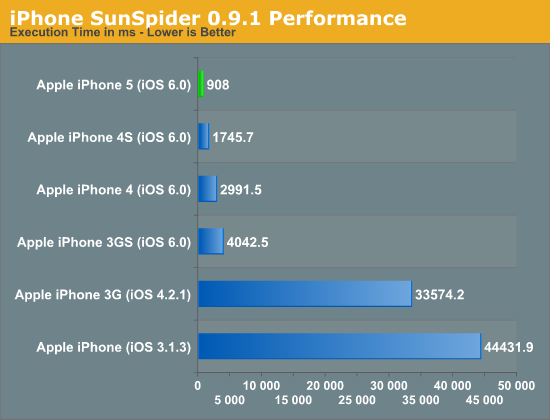
The transition from iPhone to iPhone 3G shows you just how much additional performance you can squeeze out of simply a software change. There's likely even more that could be squeezed out of that ARM11 platform, unfortunately newer versions of Safari/iOS aren't supported on the iPhone 3G so we're left with a runtime that's around 37x the length of a single run on the iPhone 5.
The rest of the devices support and run iOS 6, so we're at least on a level software playing field. The performance boost from one generation to the next is quite significant still. Going by this chart alone, the best balance of minimal upgrades and maximum perceived improvement would be from the original iPhone to the 3GS then again from the 3GS to the 5.
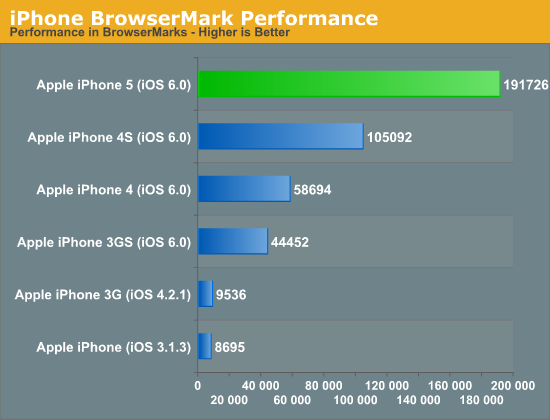
The BrowserMark results tell a similar story. The jump from the ARM11 based iPhone/iPhone 3G to the 3GS running iOS 6 is huge. Both the 4S and 5 offer doublings in performance, albeit for different reasons. The 4S delivered a doubling thanks to a doubling of core count and a move to the Cortex A9, while the iPhone 5 doubled performance through a much higher clock speed and microarchitectural improvements.
Finally we have Geekbench 2, which only runs on the iOS 6 supported devices so we say goodbye to the original iPhone and iPhone 3G:
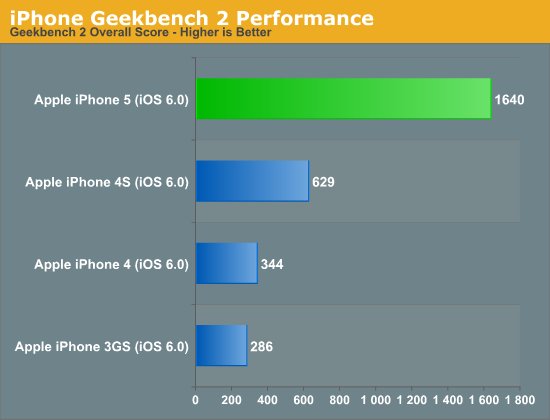
None of the jumps looks as dramatic as the move to the iPhone 5, but we already know why. The Swift CPU architecture does a great job improving memory performance, which shows up quite nicely in a lot of the Geekbench 2 subtests.
On the PC side we often talk about 20% performance improvements from one generation to the next being significant. It's clear that the mobile SoC space is still operating along a hyper Moore's Law curve. The rate of progress will eventually slow down, but I don't see that happening for at least another couple generations. The move to ARM's Cortex A15 will be met with another increase in performance (and a similarly large set of power challenges), and whatever comes next will push smartphones into a completely new category of performance.


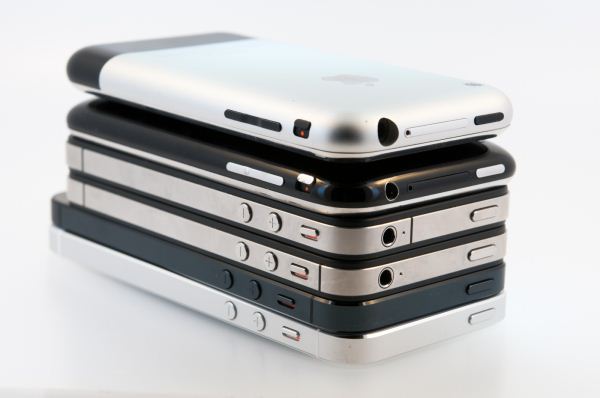
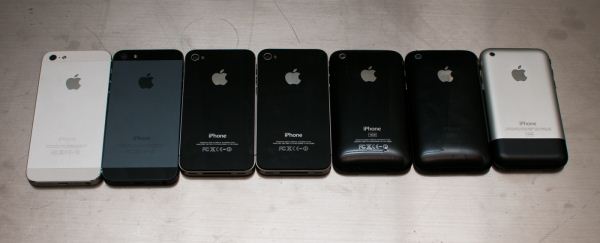








276 Comments
View All Comments
rarson - Wednesday, October 17, 2012 - link
Car bumpers are not made of aluminum.Aluminum oxidizes. So if you scratch it, then you've removed that oxidation layer to allow it to further oxidize at that spot. Rust is just iron oxidation.
Spunjji - Friday, October 19, 2012 - link
It is not normal for them to scratch so damn easily. Furthermore, you might notice that other manufacturers (say, HTC?) take steps to harden the surfaces of their devices to avoid this kind of problem.name99 - Wednesday, October 17, 2012 - link
So you're basically(a) upset that Apple fans buy products based on how they look
(b) upset that Apple fans's don't care enough about how products look to care about this
???
The true sign of the demented mind --- that it can happily hold two contradictory opinions at once.
steven75 - Wednesday, October 17, 2012 - link
Would you buy a car that gets nicks and scratches from normal usage?Um yes, everyone does. I guess all cars should be recalled!
Spunjji - Friday, October 19, 2012 - link
Would you buy a car that gets nicks and scratches from simply driving down the street? No, you wouldn't. Stop distorting the argument for an easy victory, it makes for extremely aggravating reading.doobydoo - Saturday, October 20, 2012 - link
And what evidence do you have that the equivalent of 'driving down the street' with an iPhone causes scratching?ltcommanderdata - Tuesday, October 16, 2012 - link
Any final MHz rating on the GPU? Given Apple tends to use a 4:1 clock speed ratio between the CPU and GPU, the SGX543MP3 being up to 325MHz would make sense. The SGX543MP2 seemed to be clocked at 200MHz in the iPhone 4S and 250MHz in the iPad 2 and Apple said the iPad 2012 has a 2x faster GPU, so the SGX543MP4 in the A5X likely is also at 250MHz. A SGX543MP3 at 325MHz vs a SGX543MP4 at 250MHz would seem to explain the results seen in the benchmarks.A few corrections, on page 11 the GLBenchmark 2.5 - Triangle Texture Test - Fragment Lit (Offscreen 180p) is missing the iPad 2012 result.
In iPhone 5 Device Conclusions on page 22, you write "Going back to the old 4:3 aspect ratio iPhones feels extremely claustrophobic now", but it should be 3:2.
daar - Tuesday, October 16, 2012 - link
The in-depth tech info was nice, but would have preferred it in a second post. As an engineer, while I can appreciate the advances made with the new SoC and the depth of the effort went into researching all the aspects of the phone, I also think for most purposes, the length is counterproductive when the majority of readers are looking for indicators of whether the phone is worth an upgrade. Even without the tech explanation though, the review unnaturally lacked the concise detail I'm used to at AT.In some ways, it sort of came across that the tech explanation was a long worded way of making excuses for the iPhone 5's faults and direct comparisons to superior implementations were ignored. Simple example would be the camera, where praise was given about how they cut the size, that it looked good, explanation of the purple tint and so forth. If say, Samsung had released a phone with such issues, I'd expect the review to mention the sloppiness of it, esp with rivals such as the One X having a 2.0f lens (I quite enjoyed the One X/SG3 review comparison from AT). The excuse that the lack of innovation in the new iOS being that the aim of the phone is like that of an appliance whereas Android phones aiming to be PC's is baffling; the concept of a smartphone was a versatile device to aid in our daily lives not reach a point of some ambiguity called an appliance.
darwinosx - Tuesday, October 16, 2012 - link
That was a lot of words to say nothing besides bragging that you are an engineer. Nobody cares.kyuu - Tuesday, October 16, 2012 - link
What nobody cares about are your rabid attacks on any comment that has even the slightest critique of an Apple product.